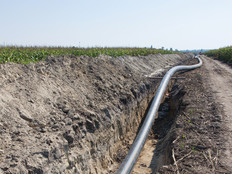The State of Broadband Access in North Carolina
North Carolina ranks 18th among states in terms of broadband access, according to BroadbandNow Research, a firm that provides independent data and research on broadband access and policy. While 94 percent of North Carolinians have access to broadband 100 megabits per second or faster, according to BroadbandNow, only 46.8 percent of the state’s population has access to a low-price wired broadband plan.
By 2025, North Carolina Gov. Roy Cooper wants to increase the percentage of North Carolina households with high-speed internet subscriptions from 73 percent to 80 percent. He also wants to boost the percentage of North Carolina households with children with high-speed internet subscriptions from 81 percent to 100 percent.
The state says that at least 1.1. million households in North Carolina lack access to high-speed broadband, cannot afford it or “do not have the skills needed to take advantage of the digital economy.”
One of the first tasks that North Carolina — and other states such as Georgia, Tennessee and Virginia — will undertake is to create more accurate broadband coverage maps than the ones currently available from the Federal Communications Commission, as The Washington Post and StateScoop report.
RELATED: How can state CIOs encourage broadband expansion?
North Carolina’s broadband infrastructure office is looking at each census block for available broadband types — including fiber, fixed-wireless and satellite — and the internet speeds those technologies provide.
Cooper has proposed using $971 million in federal funding to “rapidly build crucial infrastructure in unserved areas to give internet speeds” of 100Mbps download and 20Mbps upload to 98 percent of households, and 50Mbps downlink and 10Mbps uplink to 100 percent of households (with the ability to handle future speeds of 100/100Mbps).
North Carolina is using that census block data to create a map that can better inform state officials about where federal broadband funding should be directed after the state approves its budget, StateScoop reports. That will help avoid duplicating existing investments in areas that already have high-speed broadband and track where the funding is going.
DIVE DEEPER: Why is digital equity so critical?
How North Carolina Aims to Close the Digital Divide
Meanwhile, in late December, Weaver named Angie Bailey director of the state’s Broadband Infrastructure Office within the Division of Broadband and Digital Equity. The state created the division in July 2021 to focus on closing the digital divide in North Carolina.
“Bailey has served as interim director since August 2021 and has focused on planning for infrastructure investments utilizing American Rescue Plan dollars that were recently appropriated by the N.C. General Assembly and planning for subsequent broadband infrastructure funding from the Infrastructure Investment and Jobs Act,” a statement notes.
Cooper’s plan proposes using $420 million to “promote federal programs for affordable internet and continue subscription support once federal funding ends” and $165 million to “give 365,000 households the devices, repair support and digital literacy and skills training to participate in the digital economy.”
“It’s great if I can run a fiber line by your house, but if you can’t afford it, or if you don’t have a laptop, or you don’t have the digital skills, that fiber line is of no use to you,” Nate Denny, deputy secretary for broadband and digital equity with the North Carolina Department of Information Technology, tells Grist. “We knew this was a problem before we fell into a global pandemic, but COVID has really brought it home.”
The plan is also focused on closing racial disparities in access to high-speed broadband and seeks to increase adoption rates to 80 percent across racial subgroups including Native American (currently 57 percent), Black (currently 64 percent), Latinx (currently 68 percent) and white populations (currently 76 percent).
“We are in weekly conversations in several different stakeholder-convening efforts to bring states together and share ideas and best practices,” Denny said in December, according to StateScoop. “And to hear, importantly, from the internet provider community, the range of think tanks and consultants that work around this space and understand from both a public and private sector perspective, how states can make sure they’re pursuing these investments in as impactful a way as possible.”











